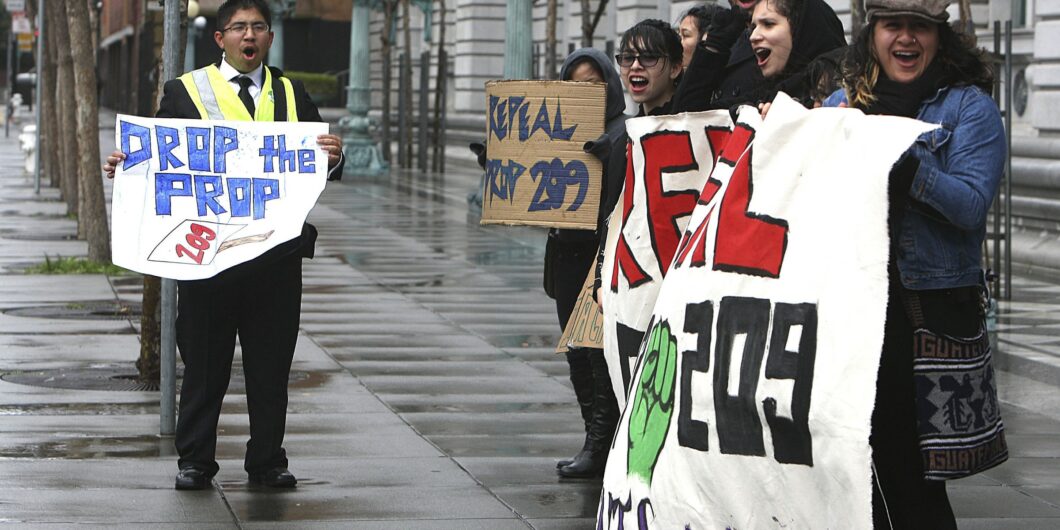What happened to the Boy Scouts of America, the once venerable youth organization that taught boys to be young men and productive citizens?
The Perils of Pure Populism
One of the salutary features of federalism is that different states can govern themselves differently, making them, in the words of Supreme Court Justice Louis D. Brandeis, “laboratories” of democracy, free to “try novel social and economic experiments without risk to the rest of the country.” Examples of this abound. For example, Nebraska alone has a unicameral legislature. Some states have term limits; others do not. Some states do not levy a state income tax, while most do, and so forth.
State-level innovation also affects the mechanics of lawmaking. Texas, for instance, exalts democracy by making most government officials—including judges—subject to popular election. Tennessee’s approach is in the opposite direction, with the state attorney general uniquely being appointed (for an eight-year term) by the state supreme court, the members of which are in turn appointed by the governor.
Some states, such as California, have a populist tradition that embraces lawmaking by initiative and referendum. In the Golden State, citizens can propose, enact, and repeal laws—and even constitutional amendments—as ballot measures.
This kind of “direct democracy” makes it easier for voters to change the law, which promotes responsiveness to the people, but this fluidity also contributes to the passage of laws that are impermanent—as easily erased as the image on an Etch-A-Sketch. Proposition 209 (also known as the California Civil Rights Initiative [CCRI]), the landmark anti-discrimination measure passed by the voters in 1996, is a case in point. Prop. 209, enacted in the Bakke era when racial preferences by state universities were permitted, but not required, amended California’s state constitution to prohibit the state from “discriminat[ing] against, or grant[ing] preferential treatment to, any individual or group on the basis of race, sex, color, ethnicity, or national origin in the operation of public employment, public education, or public contracting.”
Prop. 209 inspired a similar initiative (known as Proposal 2) in Michigan, which voters adopted in 2006, and which was upheld by the US Supreme Court in 2014. Both Prop. 209 and Proposal 2 demand government neutrality on the basis of race and sex. Ironically, color blindness is very controversial among so-called civil rights groups, which long ago abandoned the non-discrimination principle of Brown v. Board of Education and the Civil Rights Act of 1964. Prop. 209, which anticipated the Supreme Court’s 2023 decision in Students for Fair Admissions v. Harvard, passed by a margin of 55 percent to 45 percent, and has withstood several attempts to overturn it (both politically and via litigation).
In 2020, for example, California voters rejected a well-funded—to the tune of over $25 million!—effort to repeal Prop. 209, with a ballot measure known as Proposition 16, by an even greater margin (57 percent to 43 percent) than CCRI enjoyed in its original passage a quarter-century earlier. Remarkably, voters supported the preservation of Prop. 209 despite being outspent by Prop. 16 backers 14-to-1, and even though Prop. 16 was endorsed by the Golden State’s “two US Senators, many of its US Representatives, California’s governor, its attorney general, many state and local politicians, professional sports teams, labor unions, the ACLU, business elites, and major media outlets.” In other words, the wishes of California voters were emphatically clear: Maintain the ban on racial and sexual preferences.
There is nothing wrong with democracy per se. The initiative process, however, is unfiltered democracy—direct from the voting booth to the law books.
By design, the US Constitution is difficult to amend. Article V’s requirement of ratification of amendments by three-quarters of the states imposes a daunting hurdle. The need to achieve a contemporaneous consensus among 38 states reduces the likelihood of frivolous decisions and promotes stability. Of the 27 amendments adopted so far, only one (the Twenty-first) repealed an earlier amendment (the prohibition of intoxicating liquors, in the Eighteenth Amendment). As I wrote here in 2017, “The amendment process in Article V was intended to be onerous so that hasty and ill-considered changes could be weeded out.” If the California Constitution were as difficult to amend as our national charter, the voters’ recent (and overwhelming) rejection of Prop. 16 would ensure the continued vitality of Prop. 209. Only it isn’t, and it hasn’t—because of the perils of populism.
As explained by CCRI co-chair Gail Heriot, who is also a member of the US Commission on Civil Rights, Prop. 209 is once again in the Left’s cross-hairs. Ignoring the clearly expressed will of the voters, the California legislature is considering yet another attempt to gut Prop. 209. In an article for City Journal entitled “Not Taking No for an Answer,” Heriot sounds the alarm regarding something called Assembly Constitutional Amendment 7 (ACA7), which has already passed the California Assembly and is under consideration by the California Senate. Proponents need two-thirds of each house (meaning 27 of the Senate’s 40 members) to put ACA7 on the ballot.
If ACA7 qualified for the ballot and won by a simple majority of votes (50 percent plus one) in the November 2024 election, the non-discrimination provisions of Prop. 209 would become subject to “exceptions,” granted in the sole discretion of the Governor, upon the application of any city, county, or other governmental agency. The process seems rigged in favor of granting exceptions. The Governor may grant exceptions without explanation, but must justify denials with a written statement posted on the internet. Political pressure will tilt the scale toward approving requests for loopholes. While technically requests for exceptions must be for “culturally-specific” programs that are intended to benefit a specific racial, ethnic, or gender group, and that are based on (or “informed” by) “research,” these terms are either so vague or undefined to make the restrictions meaningless.
If ACA7 were passed, the provisions of Prop. 209 would in effect become optional on the part of the state and its political subdivisions; racial, ethnic, and other minority spoils could be doled out by the identity politics apparatchiks at their whim. The proponents of ACA7 include the California Legislative Black Caucus, which supports a “Reparations Priority Bill Package,” of which ACA7 is a part. Gutting Prop. 209 is a top priority for the ultra-progressive special interests that now dominate the California legislature. If the California Senate passes ACA7 by a two-thirds margin, the hard-fought success of Prop. 209 would be subject to defeat if voters were confused by the latest of the serial campaigns against CCRI. Should the provisions of the state constitution be determined by such ballot measure roulette? Is the potential for a fluke result sufficient grounds for putting a measure on the ballot?
California’s initiative and referendum processes have allowed voters to adopt several policies advocated by conservatives in the Golden State: for example, property tax reform in Prop. 13 (1978); the protection of traditional marriage in Props. 22 (2000) and 8 (2008) (overruled by judicial decisions); legislative term limits in Prop. 140 (1990); and Prop. 209. Many dubious measures have been proposed as well—and some, unfortunately, have passed. To make the California Constitution less of an Etch-A-Sketch, perhaps the repeal (or negation) of constitutional provisions should require a super-majority of voters. By their nature, constitutions are superior to legislation, and therefore should be harder to change. An ephemeral constitution is not truly a constitution.
There is nothing wrong with democracy per se; after all, our system of government rests on popular sovereignty and the Constitution begins with the words “We the people.” The initiative process, however, is unfiltered democracy—direct from the voting booth to the law books. Unconstrained populism is not well suited for sober tasks such as amending the constitution.
Progressive Era California Governor Hiram Johnson advocated for the initiative and referendum processes (as well as recall) to empower the people to take back power from the railroad interests (in particular the Southern Pacific Company) that controlled the legislature in the late 1800s and early twentieth century. Those days are long gone. Different special interests now dominate state government in Sacramento. Hiram Johnson would likely be chagrined to see that powerful factions—the 2024 version of Southern Pacific Railroad—are using the initiative process to thwart the will of the people. The fickle nature of direct democracy is in tension with the stability necessary for constitutional government.
Constitutions are supposed to be more durable and more resistant to passing political fads and shifting political winds than mere laws; they are the state’s fundamental charter. The multiple efforts to weaken or repeal Prop. 209 highlight the perils of pure populism. Constitutional protections deserve better than ad hoc tinkering by plebiscite.


